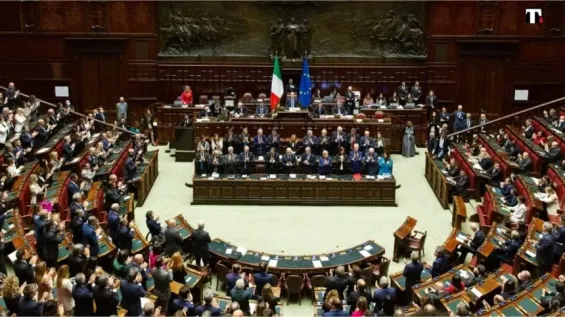After Senate approval, the Chamber of Deputies passed a new decree on citizenship acquisition this Tuesday. The law, which has just four articles, significantly tightens the rules. It introduces a key change: Italian citizenship will no longer be automatically passed to people born abroad who also hold another nationality. It also excludes recognition of citizenship for those born abroad before the reform—unless they meet specific conditions.
One important requirement is that foreign applicants must request Italian citizenship under the new law dated March 27, 2025. This request, with all necessary documents, must be sent to the local consulate or mayor’s office by 11:59 PM (Rome time) on that date. The citizenship claim must also be confirmed through a court process by the same deadline.
Binational Descendants May Lose Citizenship
Other conditions include having an Italian parent or adoptive parent born in Italy, or a parent who lived continuously in Italy for at least two years before the child was born or adopted. Citizenship can also be passed if an Italian grandparent was born in Italy.
For foreign or stateless minors descended from Italian citizens, citizenship is granted if their parents or guardians formally declare the intention to acquire it—and the child lives legally in Italy for at least two years. This declaration must be made within one year of the child’s birth or from when their connection to an Italian citizen is established, including by adoption.
Minors who became Italian citizens under previous laws but also hold another nationality may choose to renounce Italian citizenship once they reach adulthood. The law also sets a strict 24-month limit for citizenship applications through marriage or by presidential decree, with no extensions allowed.
The required legal residence in Italy is reduced from three to two years for foreigners whose parent or grandparent was an Italian citizen by birth. Former citizens wanting to regain citizenship must submit their declaration between July 1, 2025, and December 31, 2027.
Children of parents who acquire or reacquire Italian citizenship must live continuously in Italy for two years to be granted citizenship—if they live with their parents. If there’s a dispute over citizenship claims, oaths aren’t allowed. Instead, applicants must provide testimony and prove there are no legal reasons to deny or lose citizenship.
Foreigners of Italian origin can enter Italy and work under subordinate contracts outside the country’s usual foreign worker quotas. The Italian Foreign Minister will decide eligible destination countries by decree.
Political Reactions: Government Supports, Opposition Criticizes
Supported by Giorgia Meloni’s government, these new rules mark a big shift from previous, more flexible laws. Before, anyone proving Italian ancestry going back to a citizen after Italy’s unification in 1861 could apply for citizenship. This helped many descendants of the Italian diaspora, especially in South America.
Now, only applicants who prove their ancestor was an Italian citizen at birth are eligible. Foreign Minister Antonio Tajani says this change stops misuse of the citizenship law and eases the workload on naturalization offices, allowing consulates to focus on applicants with real ties to Italy.
Opposition Democrats see this as a step backward during a time when identity issues are sensitive. Nicola Carè, a deputy representing Italians abroad in Africa, Asia, Oceania, and Antarctica, voiced strong criticism. He called the rushed law a «deep, painful, and unjust wound» and condemned both the process and its substance.
Carè argued this decree isn’t about addressing an emergency but about building barriers against Italians living abroad—people who should be welcomed, not seen as threats.
By the end of March, over 60,000 citizenship requests were pending in Italy. The government estimates that Italians living abroad have grown by 40% over the past ten years, from 4.6 million to 6.4 million.





 chargement...
chargement...















